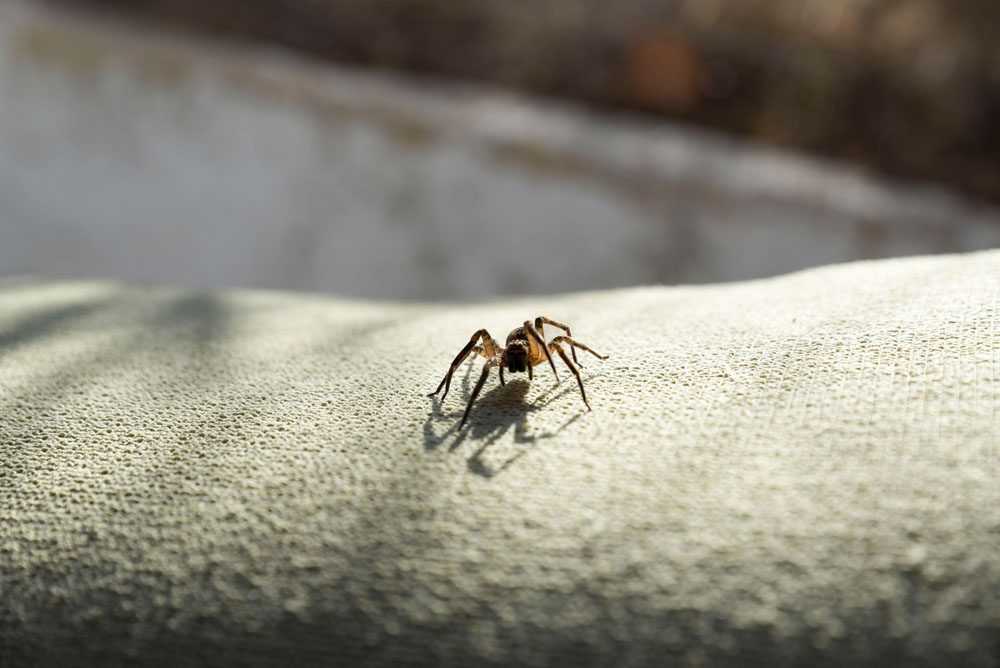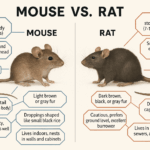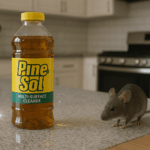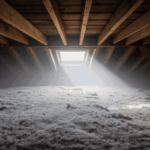Autumn is a beautiful time of year in the Portland/Vancouver area and also signals the beginning of spider season. As temperatures continue to drop, you are more likely to encounter an eight-legged visitor scuttling around your home. Learn how to keep spiders out of your home with these natural remedies from PURCOR and understand how natural spider repellents work.
Common spider species found in homes include house spiders and jumping spiders. Identifying these species can help you take appropriate measures to keep them at bay.
Understanding Spider Behavior
Understanding why spiders are drawn to your home can help you take effective steps to deter them. Spiders are fascinating creatures, but their presence in your living space can be unsettling. Here’s what you need to know about their behavior.
What Attracts Spiders?
Spiders are attracted to several factors that make your home an ideal habitat for them. Here are some of the most common attractants:
- Warmth: Spiders thrive in warm environments. They often seek out cozy spots near heating vents, radiators, or sunny windows where they can stay warm.
- Moisture: Spiders need a certain level of humidity to survive. This is why you often find them in damp areas like basements, crawlspaces, or bathrooms.
- Food: As predators, spiders feed on insects. Areas with high insect activity, such as near food sources, trash cans, or pet areas, are particularly attractive to them.
- Shelter: Spiders need safe places to hide and spin their webs. Cluttered areas like attics, garages, or storage rooms provide the perfect shelter for them.
Why Do Spiders Enter Your Home?
Spiders enter homes for various reasons, and understanding these can help you prevent their entry:
- Food: The abundance of insects inside homes, such as flies, mosquitoes, and moths, attracts spiders looking for a meal.
- Shelter: Spiders seek out warm, cozy spots to hide and spin their webs. They often enter homes through cracks, crevices, or open windows.
- Mating: Male spiders may enter homes in search of female spiders to mate with.
- Accidental Entry: Sometimes, spiders enter homes accidentally through open doors, windows, or on objects brought inside, such as plants, firewood, or boxes.
By understanding these behaviors, you can take proactive steps to make your home less inviting to spiders.
Preparing Your Home for Natural Spider Repellents
Before you start using natural spider repellents, it’s crucial to prepare your home. A clean and organized home is less attractive to spiders and enhances the effectiveness of natural repellents. Here are some practical tips:
Clean and Declutter
- Vacuum and Dust Regularly: Focus on areas where spiders are most active, such as basements, crawlspaces, and attics. Regular cleaning helps remove spider webs and egg sacs.
- Remove Clutter: Boxes, papers, and clothing can provide shelter for spiders. Decluttering these items reduces hiding spots.
- Organize Your Home: Keep closets, cupboards, and drawers tidy to minimize potential hiding places for spiders.
- Seal Cracks and Crevices: Check around windows, doors, and pipes for any gaps and seal them to prevent spiders from entering your home.
- Maintain Cleanliness: Regularly clean surfaces, floors, and countertops to keep your home tidy and less appealing to spiders.
By following these tips, you can create an environment that is less inviting to spiders and more conducive to the effectiveness of natural spider repellents.
Horse Chestnuts and Walnuts: Natural Spider Repellents
Horse chestnuts and walnuts are well-known natural spider deterrents. To help keep spiders out of your home, crush some nuts and place them at spider entry points. Common spiders found in homes include house spiders and jumping spiders.
For deterring spiders, you can also use outdoor pesticides and sprays specifically designed to prevent their entry into your home.
Coconut Oil and White Vinegar: Spray Bottle
Spiders most often live in the corners of homes where they will go undisturbed. Managing the spider population in homes, particularly in bedrooms, is crucial to keeping these areas spider-free.
You can treat these areas and any other areas covered in cobwebs by mixing a cup of white vinegar and a teaspoon of coconut oil together. This concoction will help deter spiders and serves as a natural spider deterrent.
Essential Oil: Peppermint Oil
Essential oils like peppermint oil, cinnamon, lavender, tea tree, and eucalyptus have strong scents that many humans enjoy, but that spiders hate. You can make a solution by mixing a few drops of one of these essential oils and water then spraying it in entryways, around your bed, and anywhere else you would like to ward off spiders.
4. Saline Solution
Salt is poisonous to spiders. You can create a saline solution using about ⅛ cup of salt mixed with a gallon of warm water. Pour it into a spray bottle and you have a natural spider-killing spray. Natural spider repellents work effectively when used consistently.
As you work to get rid of spiders in your home it’s also important to keep in mind, some spiders can help control other pests including mosquitoes and ants. Hunting spiders, in particular, play a significant role in controlling insect populations. If you’d like more about the different spider species that live in our area take a look at our spider informational page. It lists everything you may want to learn from their biology to habits and prevention.
Experts in Pest Control
A couple of spiders here and there may be unnerving, but if you’re experiencing a spider infestation, it’s best to contact a pest control technician. We at PURCOR are knowledgeable in the variety of pests that live in the Northwest and we will help protect your home and your family from pests, including spiders like wolf spiders. We use a proactive approach in pest control and we limit our use of products in your home. Identifying the most common spider species found in homes can be crucial for effective pest control. So call PURCOR or contact us today for all your pest control needs.




